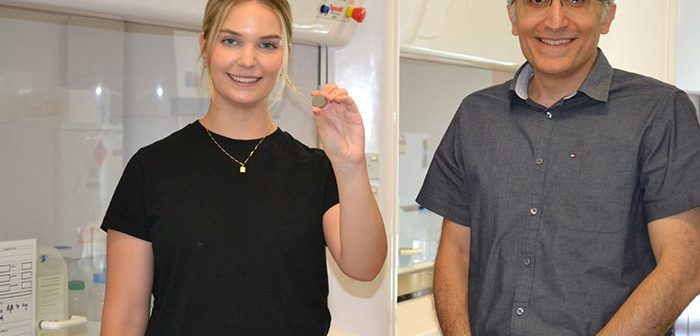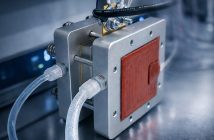
Adelaide’s Flinders University has published research on new alloy materials used in orthopedic surgery to reduce patient stiffness, pain and infections.
The research, titled Development of Novel Antibacterial Ti-Nb-Ga Alloys with Low Stiffness for Medical Implant Applications (2024) by Rhianna McHendrie, Ngoc Huu Nguyen, Manh Tuong Nguyen, Khosro Fallahnezhad, Krasimir Vasilev, Vi Khanh Truong and Reza Hashemi, is published in the Journal of Functional Biomaterials.
It evaluated new titanium-based alloys containing gallium additions with the aim of offering beneficial antibacterial properties while having a reduced stiffness level to minimise discomfort when in contact with bone.
“The alloys in this work have shown very promising results and are part of ongoing efforts to improve components in orthopedic implants,” says Dr Reza Hashemi, a Senior Lecturer in Mechanical Engineering at Flinders University. “Compared to existing prostheses, the addition of gallium produces a superior material with antibacterial properties to improve patient outcomes while reducing potential pain, medical complications and long-term implant failure.”
The study was supported by Microscopy Australia and the Australian National Fabrication Facility (ANFF) under the National Collaborative Research Infrastructure Strategy at the South Australian Regional Facility, Flinders Microscopy and Microanalysis, Flinders University.
At the same time, Hashemi’s research group at Flinders University, in collaboration with experts from the Australian Orthopedic Association National Joint Replacement Registry , Royal Adelaide Hospital and UniSA, are also looking into whether machine learning (ML) algorithms could be used as part of initial screening for hip and knee joint replacements to reduce long-term complications.
This research recommends further studies into the usefulness of ML prediction modelling to realise the potential of various virtual selection techniques to improve the assessment of the most suitable total hip and knee prosthesis for each patient. An ML algorithm can have some advantages over conventional modelling if built to be flexible and adapt to changes in data over time.






